PH-EITI Pushes for ‘Carbon Clarity’ in Extractive Industries
Jollie Anne Las Piñas
Manila, Philippines | June 20, 2025
Government agencies, corporate leaders, civil society organizations, and international partners gathered at the Philippine Extractive Industries Transparency Initiative (PH-EITI) forum titled “Carbon Clarity: Carbon Emissions Reporting in the Extractive Sector.” The high-level dialogue highlighted the need for standardized greenhouse gas (GHG) reporting and climate-aligned governance in one of the country’s most emissions-intensive sectors.
In his opening remarks, Department of Finance Undersecretary and PH-EITI Focal Person and Chair Bayani H. Agabin emphasized the importance of grounding climate ambition in accurate and accessible data. “Carbon clarity is both a moral and practical imperative. You cannot manage what you do not measure,” he said. “Transparency in carbon emissions, especially in sectors like mining and petroleum, is essential for crafting effective climate policies and a just energy transition.”
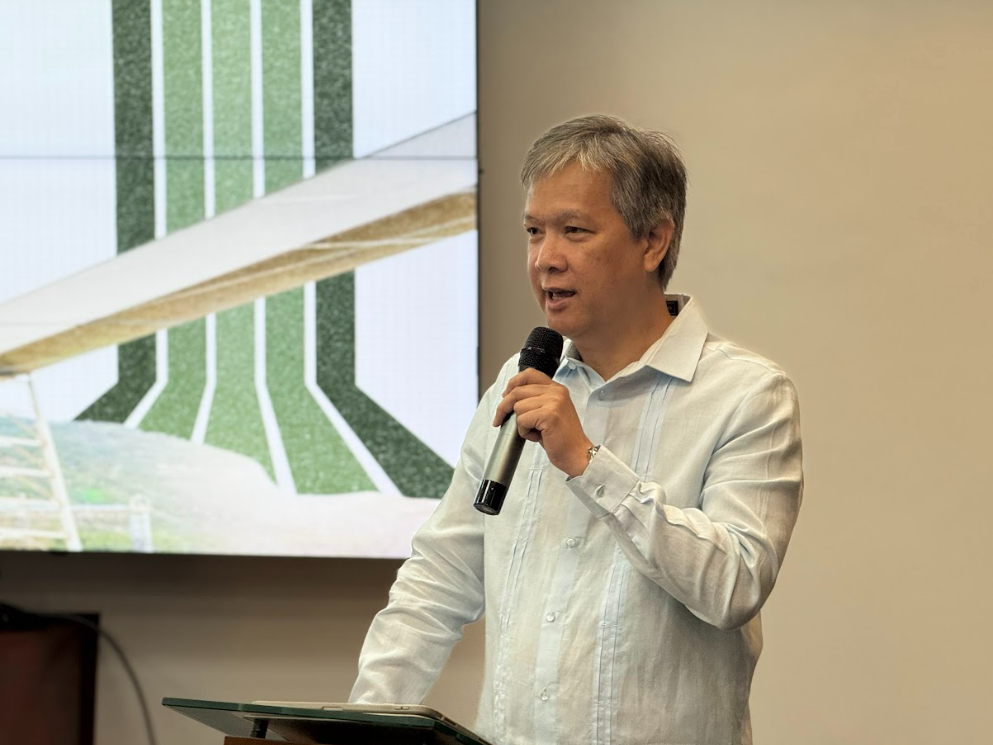
In the photo: Usec. Bayani Agabin welcoming the participants of the Carbon Clarity: Carbon Emissions Reporting in the Extractive Sector forum.
The forum featured key presentations from the Philippine Stock Exchange (PSE), Department of Energy (DOE), Nomura Research Institute (NRI), the EITI International Secretariat, and the PH-EITI data analysis team, each offering insights on the intersection of climate action, transparency, and economic resilience.
PSE Executive Vice President and COO Atty. Roel Refran highlighted that the Philippines is preparing for the adoption of the IFRS Sustainability Disclosure Standards (S1 and S2), which serve as the global baseline for ESG and climate disclosures. He noted that extractive firms are now required to report sustainability metrics under the Philippine Mineral Reporting Code 2020, with full IFRS compliance expected in the coming years. These shifts are reinforced by the PSE’s own net-zero commitments and publication of the ESG101 guidebook.
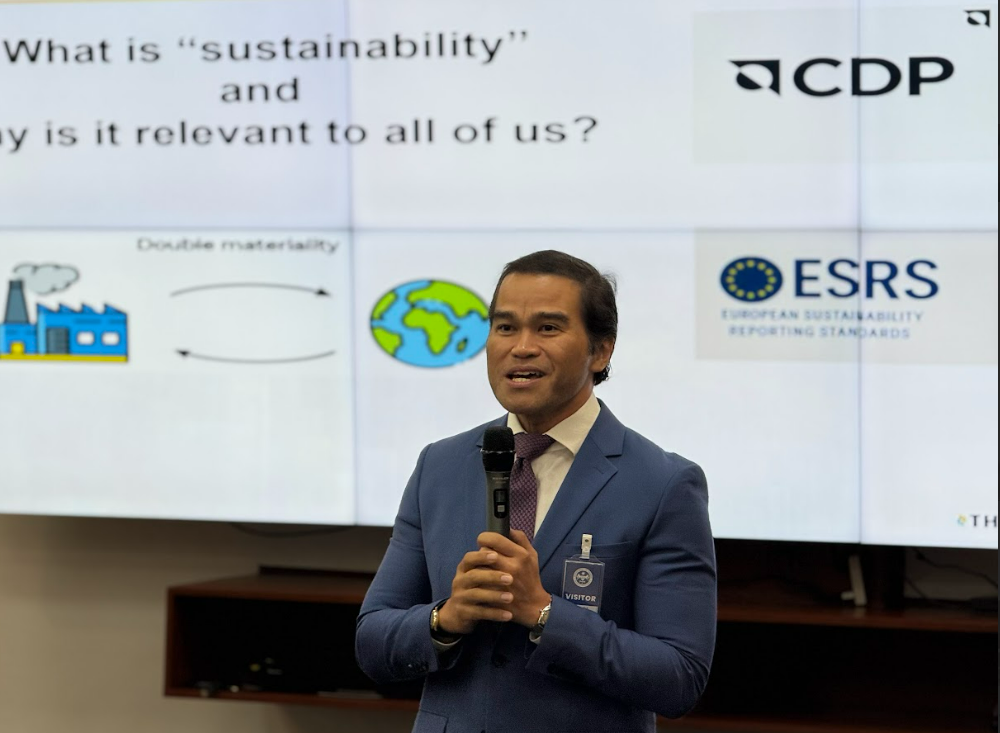
In the photo: PSE Executive Vice President and COO Atty. Roel Refran discussing about the initiatives of private firms regarding GHG emissions and how sustainability reporting is being adopted in the corporate world.
DOE Director Marissa Cerezo of Renewable Energy Management Bureau, presented the Philippine Energy Transition Plan 2023–2050, which aims to bring the country’s renewable energy share to over 50 percent by 2050. Cerezo reported that the Philippines has already attracted USD 1.981 billion in clean energy investments and awarded over 1,400 renewable energy contracts. She also pointed to the country’s critical mineral resources as essential to the global energy transition, highlighting the extractive sector’s dual role as both a contributor to emissions and a key enabler of decarbonization technologies.
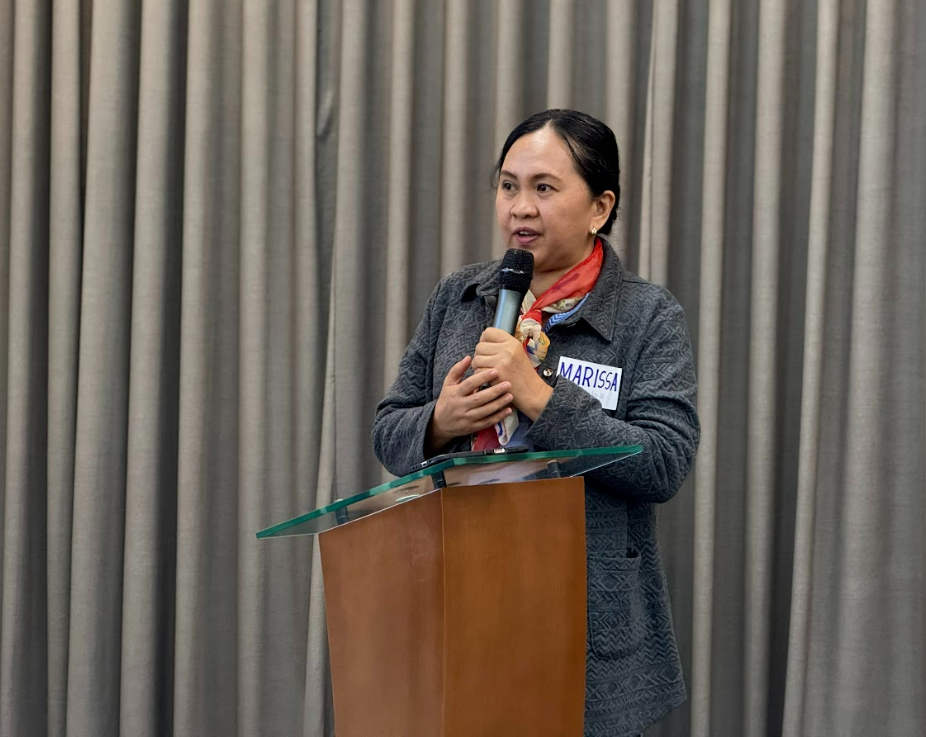
In the photo: DOE Director Marissa Cerezo of Renewable Energy Management Bureau giving an update about the Philippine Energy Transition Plan 2023-2050.
Sustainability consultant Jonas Dumdum of Nomura Research Institute introduced a six-step GHG accounting framework based on the Greenhouse Gas Protocol. He discussed the growing trend toward disaggregated Scope 1, 2, and 3 emissions reporting and emphasized that while current disclosures remain largely voluntary, the trajectory points toward mandatory climate reporting under global frameworks such as IFRS S2. Dumdum reinforced the link between carbon disclosure and financial resilience, citing that climate risks must be integrated into companies’ risk management strategies to ensure long-term viability.

In the photo: Sustainability consultant Jonas Dumdum of Nomura Research Institute giving a practical take on how emissions are measured and reported.
Southeast Asia Country Manager Sarah Hayton of EITI, framed emissions reporting within the 2023 EITI Standard, specifically Requirement 3.4, which encourages extractive companies to disclose GHG emissions in line with international norms. Hayton emphasized that the EITI’s multi-stakeholder structure makes it well-positioned to support national climate transparency efforts without duplicating corporate reporting burdens. She cited Trinidad and Tobago as a success story where voluntary EITI reporting catalyzed policy reforms.
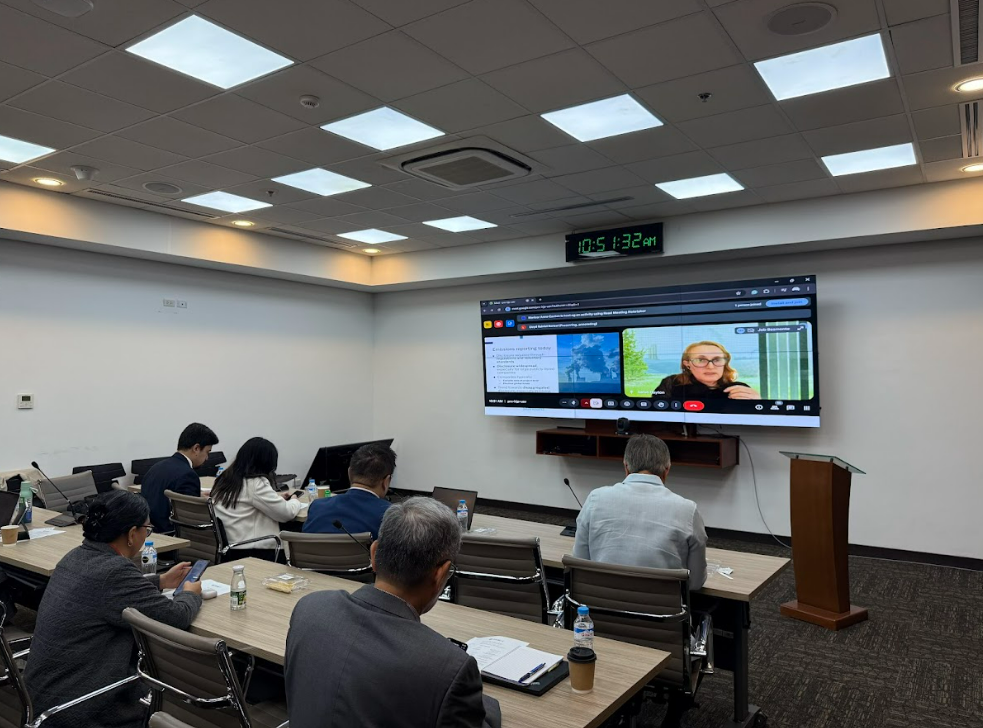
In the photo: Southeast Asia Country Manager Sarah Hayton of EITI giving an international perspective on GHG reporting and how GHG disclosures fit within the global EIT-IF framework.
PH-EITI’s own Economic Development Specialist, Malene Skensved, presented initial estimates suggesting that emissions from nickel and copper producers alone exceed 1.4 million tonnes of carbon dioxide equivalent annually, underscoring the scale of emissions from the extractive sector and the urgent need to standardize Scope 1 and 2 reporting. The team called for stronger industry engagement and alignment with global reporting standards to close existing data gaps and inform national GHG planning.
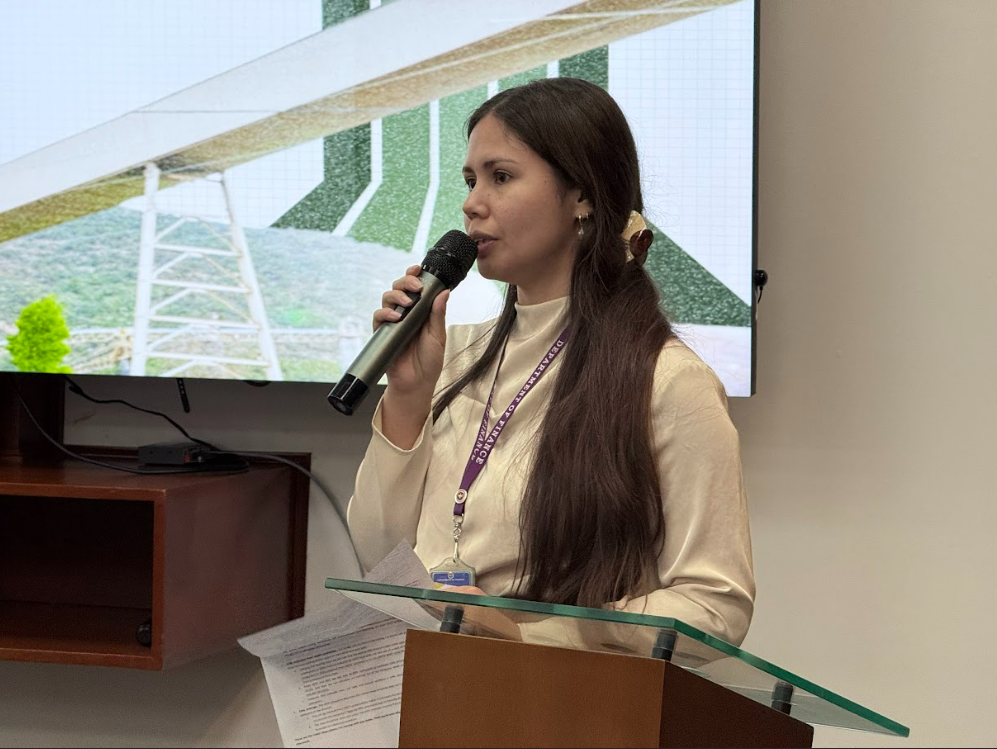
In the photo: Ms. Malene Skensved the Economic Development Specialist of PH-EITI giving an overview of the initial observations made by the PH-EITI on the GHG emissions data from nickel and copper mining companies.
Civil society leaders Mr. Joel Chester Pagulayan of Oxfam Pilipinas and Ms. Angelika Marie David of Institute for Climate and Sustainable Cities urged that climate transparency go beyond compliance. “Emissions data should inform local planning, reskilling, and accountability,” they said, framing GHG reporting as a tool for justice and inclusion.
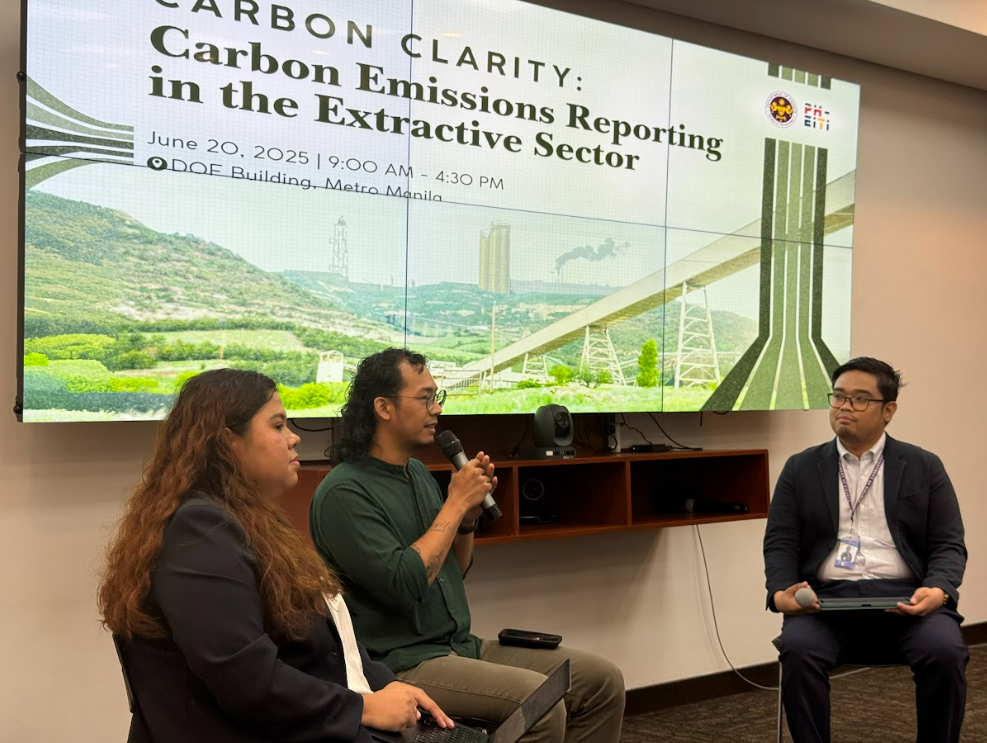
In the photo: Our reactor, Mr. Joel Chester Pagulayan of Oxfam Pilipinas and Ms. Angelika Marie David of Institute for Climate and Sustainable Cities, reflecting on how GHG data can inform public debate and promote climate justice
The forum also featured a focused afternoon workshop among government, industry, and civil society actors to discuss practical challenges and solutions for improving emissions reporting. Key barriers included limited capacity of sustainability teams, unclear data requirements, and the absence of uniform validation standards. Participants emphasized the need for stronger internal systems, better guidance, and continued multi-sector collaboration to scale GHG monitoring and verification.
In closing, PH-EITI’s Multi-Stakeholder Group reaffirmed its call to institutionalize emissions transparency in the extractive sector. “Transparency may not directly cut emissions, but it enables accountability and informed decisions,” said Maria Aurora Teresita Tabada, MSG member and Head of the Gender Resource Center at Visayas State University. The forum concluded with a clear message: achieving carbon clarity must translate into concrete policies, collective action, and lasting impact for a more sustainable and inclusive Philippines.
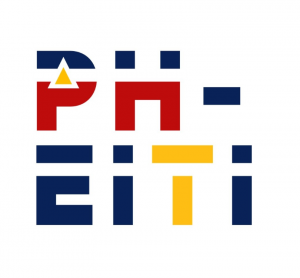
A government-led, multi-stakeholder initiative implementing EITI, the global standard that promotes the open, accountable management, and good governance of oil, gas, and mineral resources. PH-EITI was created on 26 November 2013 through EO No. 147, s. of 2013. It is a government commitment first announced through EO No. 79, s. of 2012.